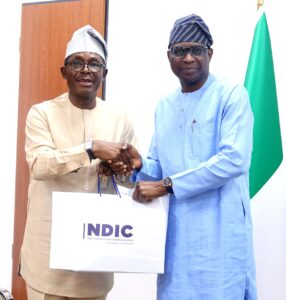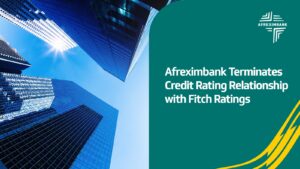Taiwo Oyedele, Chairman of the Presidential Fiscal Policy & Tax Reforms Committee has asked the Revenue Mobilisation Allocation and Fiscal Commission (RMAFC) to join the ongoing effort including consultation with key stakeholders to arrive at a generally acceptable outcome of the tax reform bills.
Oyedele in a statement he personally signed this Tuesday said the moment calls for a constructive and objective approach focusing on finding a workable solution, avoiding further controversies and working together in order to move the nation forward.
He note the support of the RMAFC for the four tax reform bills presently before the National Assembly and the acknowledgement that the reforms are necessary to set Nigeria on an inclusive growth trajectory for the benefit of all; however, he had observations stemming from the recent media engagement of the Commission and in this case, the proposed VAT sharing formula, stating that it is important to provide some context and highlight the issues which the reforms seek to address.
“VAT was introduced via a decree in 1993 to replace the sales tax which was being administered by states at the time. While it is being centrally collected to ensure better efficiency and manage the intricacies of the multi-layered nature of VAT, there is a recognition that VAT remains a state tax.
“Hence, 85% of the revenue is distributed to states with the federal government retaining only 15% which is a fraction of the VAT generated by the FCT and import VAT that ordinarily belong to the federal government. The sustained central collection and sharing formula therefore reflect this understanding among the tiers of government.
“The tax predates the 1999 Constitution and despite having been in operation for over 5 years, the tax is not mentioned in the 1999 Constitution making it a residual matter within the purview of the states.
“As a result of the above, VAT is paid into a special pool account and not treated along with the other revenues accruable to the federation for which the RMAFC is expected to play an advisory role regarding the sharing formula as contained in section 162 of the 1999 Constitution. A similar revenue item is stamp duties which also belong to states and it is meant to be shared among them based on 100% derivation without any requirement for the RMAFC to be involved in determining the sharing formula, Oyedele stated.
The chairman stated that the proposed VAT revenue sharing formula in the tax bills along with the other VAT reform proposals are meant to address key issues which are existential to the VAT regime as currently operated.
Referencing a pending case by Rivers and Lagos states seeking to administer VAT as a state tax in view of the perceived inequity in the current distribution formula and perceived unfairness of the distribution formula, he pointed out that if the case, which is pending at the Supreme Court succeeds, States will lose the opportunity to share VAT revenue among themselves as any revenue generated by each state will be retained 100%.
He added that “import and international VAT will become the sole revenue of the federal government along with FCT VAT, which altogether account for more than 50% of the current VAT revenue compared to the 15% being shared by the federal government that is proposed to reduce to 10% under the tax bills in favour of states.
“Moving away from the central collection of VAT will not only lead to significant revenue loss of over 50% for all the states, they will also face challenges in collecting VAT as evident from the old sales tax regime administered by states and the consumption tax being collected currently by some states.
“This will make states and local governments vulnerable and further increase subnational fiscal risks with the attendant economic and social consequences.
“There will also be challenges to commerce and interstate trade in addition to the cascading effect on inflation”.
On the role of the RMAFC, Oyedele stated that the committee believes that the focus should be on the ongoing engagements with key stakeholders to reach an acceptable position as a matter of priority while observing that
more understanding of the issue is required to enable more constructive contributions to the debate towards an effective resolution.
He noted some of the concerns expressed which are either not applicable or only require some clarifications include: That VAT consumption needs to be determined based on taxpayer residence; The illustration regarding the purchase of an asset in Lagos for use in Kano does not pose any difficulties as VAT has an inbuilt mechanism for input and output VAT where only the VAT related to incremental value added in a jurisdiction will be attributed to such location with production treated as intermediate consumption at each stage of the production process prior to the final consumption; There is no need for any technology to track the location of consumption, every eligible business will simply be required to indicate the location of sales in its VAT returns as stipulated under section 22(12) of the Nigeria Tax Administration Bill. It is not necessary to tag VAT collections to end-user location; as well as the horizontal distribution of VAT revenue among states is not based on a formula of 50% derivation, 35% population and 15% equality as stated by the Commission but rather 20% derivation, 50% equality and 30% population.
Oyedele concluded that VAT administration is already under dispute, therefore seeking a political solution to avoid the risk of the tax being adjudged as a tax to be administered by states requires urgent action.
Good production costs money and you can support what we do. Please find our details below👇🏾👇🏾👇🏾 Account name: MARKET ONLINE MEDIA Bank: UBA Acc No: 1026401930.






























